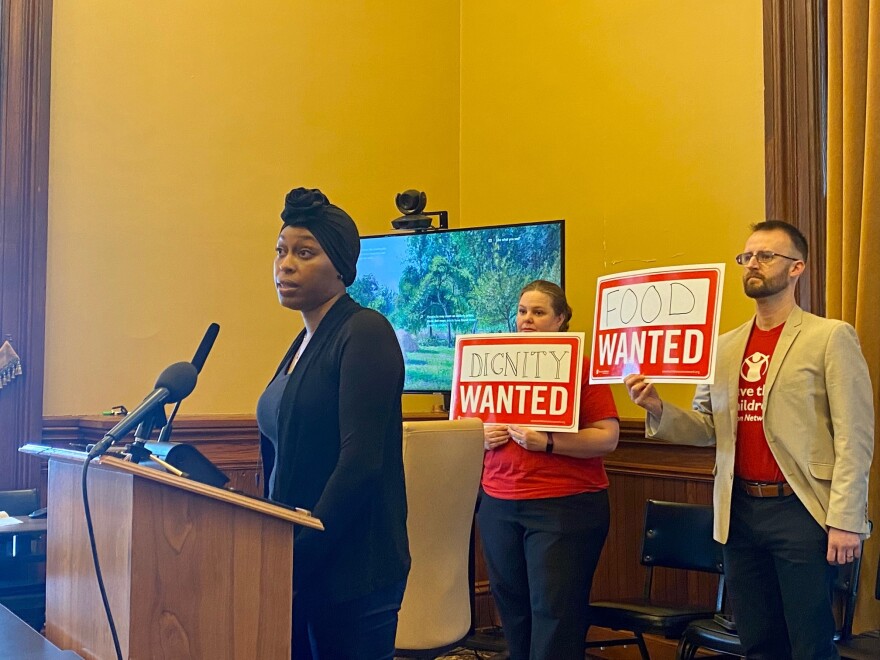Iowans weighed in at a Statehouse public hearing Tuesday on a bill that would change eligibility requirements for public assistance programs.
The House of Representatives held the hearing on a Senate bill that would limit households seeking food assistance to a maximum of $15,000 in liquid assets and personal property. A primary home, a first car of any value, and a second car valued up to $10,000 would not be included in the asset test.
The bill would also require Iowans on Medicaid to cooperate with child services and set up a new state computer system or pay a private company to conduct frequent reviews of Iowans’ eligibility for public assistance programs.
If the state finds a person may no longer be eligible, the state would be required to notify that person in writing, who would then have 10 days to respond to try to avoid having their benefits terminated.
Briana Jenkins of Ankeny asked lawmakers to reject the bill. She said it would leave people without food.
“The SNAP program allows me to purchase very expensive baby formula for my infant daughter,” Jenkins said. “The new changes will have a huge effect on myself, and so many of us will not be able to qualify for services.”
Joseph Oleson of Grinnell urged lawmakers to pass the bill, saying it’ll help make sure his tax dollars are only going to those who truly need them.
“I make sacrifices every day to make ends meet,” he said. “I drive a used car, buy off-brand food, wear clothes that have gone out of fashion. Why should the people who will be getting government handouts—getting my tax dollars—not have to make the same sacrifices I make on a day-to-day basis?”
The nonpartisan Legislative Services Agency estimates that 1% of people getting public assistance would have their benefits canceled because of “discrepancies,” including 8,000 Medicaid recipients and 2,800 SNAP recipients.
Opponents of the bill said this would disproportionately affect children and Iowans with disabilities.
LSA estimates the bill would cost the state money in the first and second years of implementation, by $1.6 million and $5.9 million, respectively. Starting in fiscal year 2027, the bill is estimated to save the state $8.2 million per year.
The savings to the state are associated with the expectation that people would lose Medicaid coverage, which is government-funded health insurance for low-income and disabled individuals. Food assistance is fully funded by the federal government.
Valerie Petersen with the Food Bank of Siouxland said SNAP usage and fraud rates are at an all-time low. She said the bill would hurt grandparents, laborers who are laid off in the winter, and single working moms and their kids.
“This bill will affect the most vulnerable people in our state,” Petersen said. “And by signing this bill, you are working against these people. You are turning your back on them and telling them you don’t care if they ever make their way out of poverty.”
Joan Blair-Dick of Bettendorf said the bill is not perfect, but she thinks it will help safeguard funds for the long-term. She said as a social worker, she has helped people apply for assistance.
“So I have seen what it can do and what it can provide to our individuals and our families here in our state,” Blair-Dick said. “But I have also seen how it can be abused. I feel that it is essential that we look at all assets, especially assets beyond what we have identified, because many of our families are in great need of having the assistance.”
The bill initially passed in the Senate, and advanced through a House committee with Republican support last week. House Republicans initially proposed a different bill related to public assistance eligibility and may still decide to make changes to the Senate bill.





